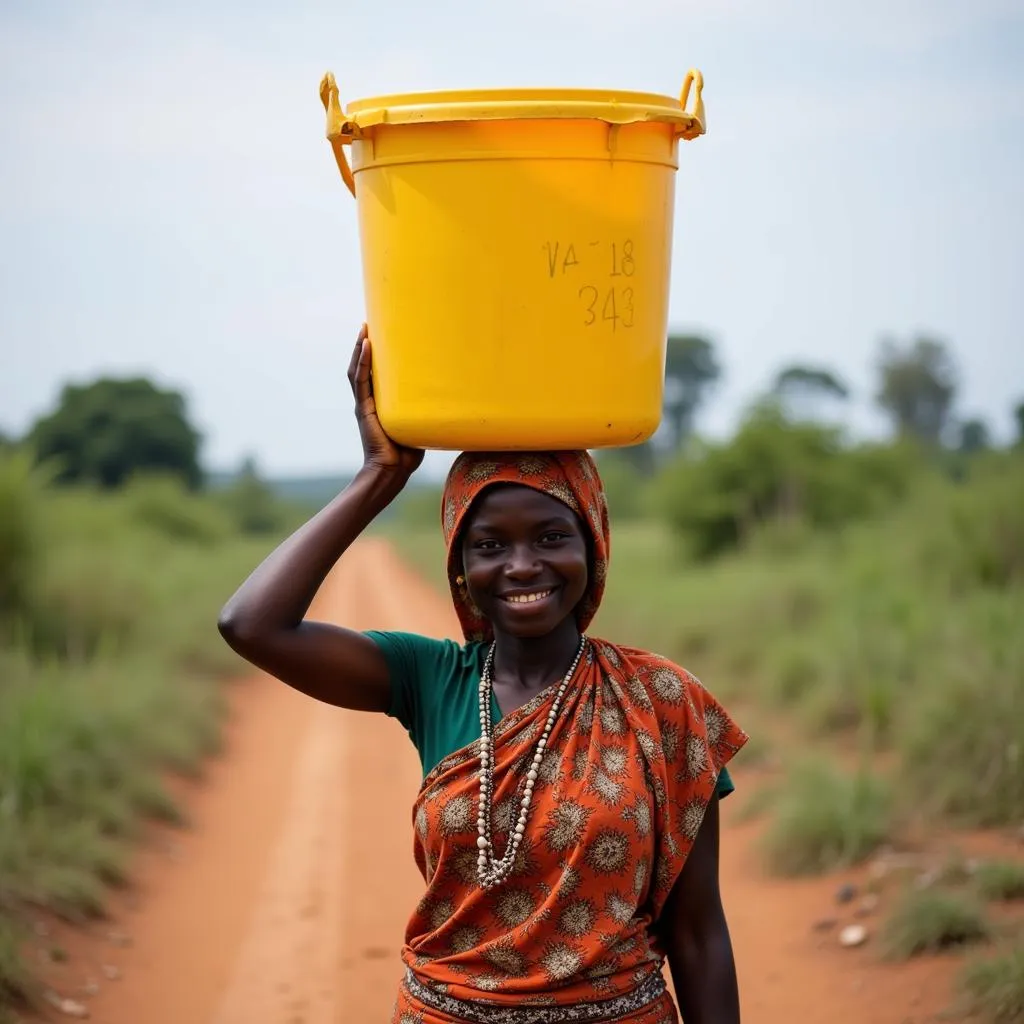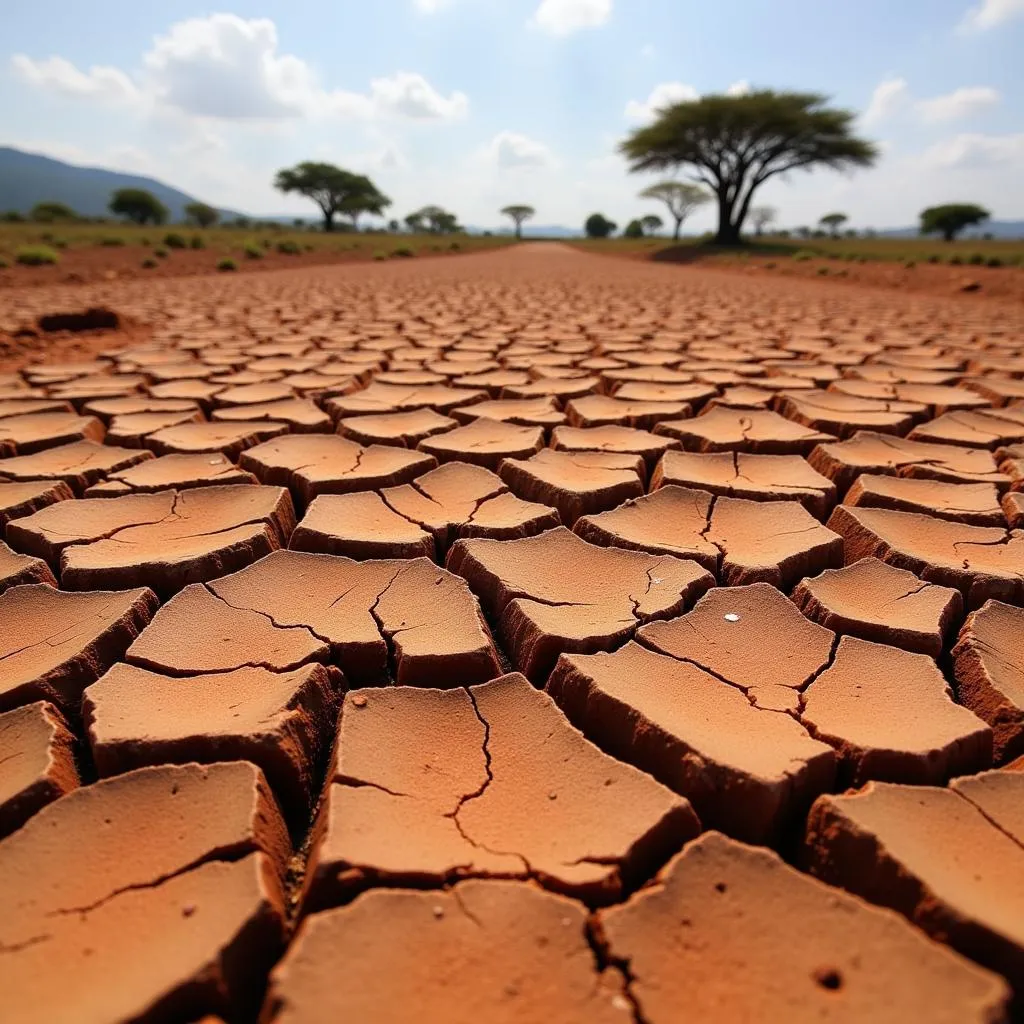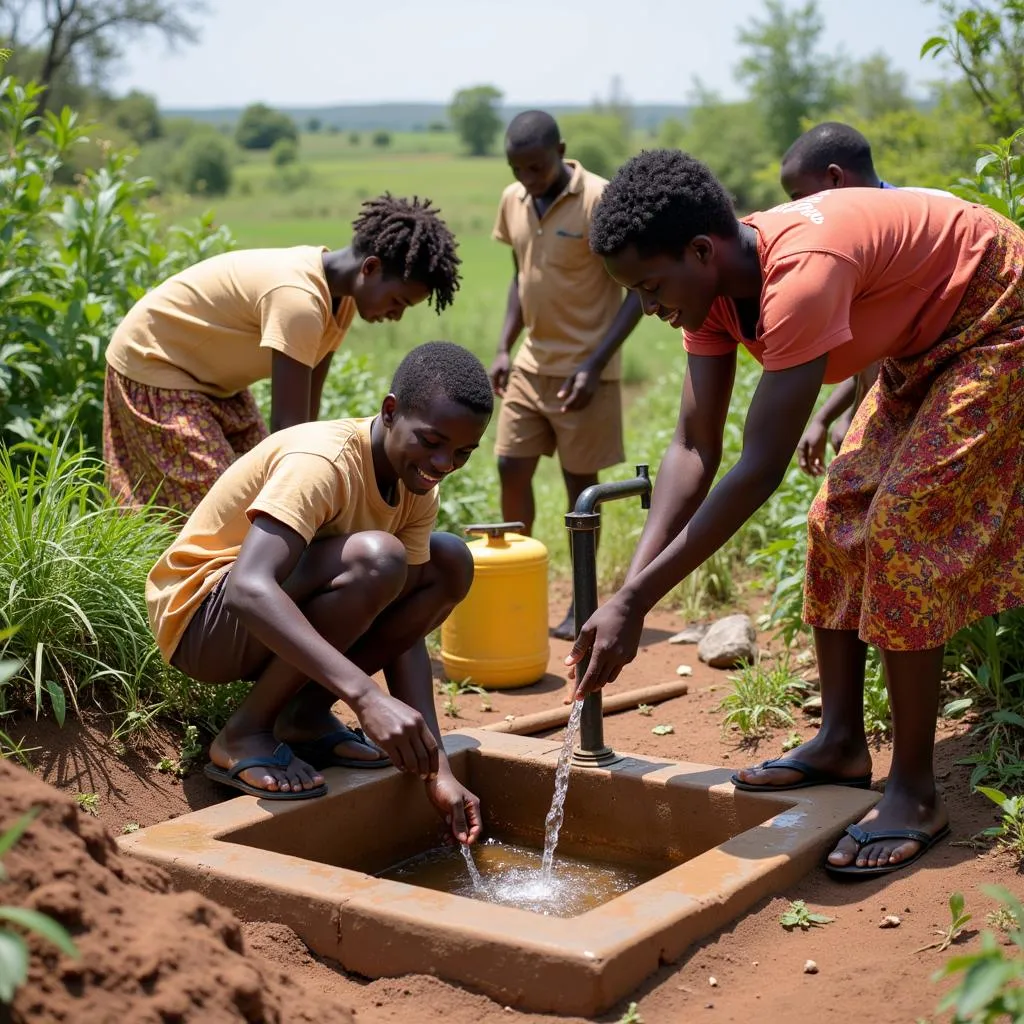Water, the essence of life, is unfortunately a luxury for many across the African continent. A significant number of African countries grapple with a persistent water crisis, a complex issue with far-reaching consequences on health, economies, and overall development. Factors such as climate change, poverty, inadequate infrastructure, and population growth exacerbate this pressing challenge.
 Woman Fetching Water
Woman Fetching Water
Understanding the Scope of the Water Crisis in Africa
While the entire continent faces water-related challenges to varying degrees, certain regions are particularly vulnerable. Sub-Saharan Africa, for example, bears a disproportionate burden, with limited access to safe drinking water and sanitation being a critical issue. This lack of access directly impacts health outcomes, leading to waterborne diseases and hindering overall well-being.
Beyond health, the water crisis has profound implications for agriculture, a backbone of many African economies. Droughts and unpredictable rainfall patterns severely impact crop yields, leading to food insecurity and economic instability. This vulnerability highlights the interconnected nature of water scarcity and its ripple effect on various facets of life.
Case Studies: African Countries with Water Crisis
Examining specific countries illuminates the multifaceted nature of this crisis. Let’s consider a few examples:
-
Somalia: Plagued by prolonged drought and internal conflicts, Somalia faces a dire water crisis. Limited infrastructure and widespread poverty further exacerbate the situation, leaving millions dependent on humanitarian aid for survival.
-
Madagascar: This island nation, known for its unique biodiversity, grapples with severe water stress, particularly in its southern regions. Deforestation and unsustainable agricultural practices contribute to water scarcity, impacting both human and ecological well-being.
 Drought-Stricken Land
Drought-Stricken Land
- Namibia: Situated in one of the driest regions of the world, Namibia faces an enduring water challenge. The country has implemented innovative water management strategies, such as desalination, to address this issue, highlighting the need for sustainable solutions.
These are just a few examples of the many African countries grappling with water crisis. Other nations facing similar challenges include Ethiopia, Kenya, and Chad, each with its unique set of circumstances and responses.
The Role of Climate Change and Environmental Degradation
Climate change acts as a threat multiplier, exacerbating existing water stress in Africa. Rising temperatures, altered rainfall patterns, and more frequent extreme weather events, such as droughts and floods, disrupt water availability and accessibility.
Furthermore, deforestation, land degradation, and unsustainable agricultural practices contribute to soil erosion and reduced water retention capacity. This environmental degradation further intensifies the water crisis, impacting both rural and urban communities.
Towards Sustainable Solutions: Addressing the Water Crisis
Addressing this complex challenge necessitates a multi-pronged approach:
-
Investing in Infrastructure: Developing and maintaining water infrastructure, including dams, boreholes, and irrigation systems, is crucial for water storage, distribution, and efficient use.
-
Promoting Water Conservation: Implementing water-saving techniques in agriculture, industry, and households is essential to reduce water waste and enhance efficiency.
-
Climate Change Adaptation: Investing in climate-resilient agriculture, drought-resistant crops, and early warning systems can mitigate the impacts of climate change on water resources.
-
Community Engagement: Empowering local communities to manage and conserve water resources through education, awareness campaigns, and participatory decision-making is paramount.
 Community Water Project
Community Water Project
Conclusion: A Collective Effort for Water Security
The water crisis in Africa demands urgent attention and concerted action. By investing in sustainable solutions, promoting responsible water management practices, and addressing the root causes, such as poverty and climate change, we can strive to secure a water-secure future for all. It is a collective responsibility, one that requires collaboration between governments, organizations, and individuals to ensure that water, the lifeblood of the continent, is accessible to all.
FAQs
1. What are the main causes of the water crisis in Africa?
The water crisis in Africa stems from a complex interplay of factors, including climate change, poverty, inadequate infrastructure, population growth, and environmental degradation.
2. How does the water crisis affect the lives of people in Africa?
The water crisis has far-reaching consequences, impacting health, food security, livelihoods, and overall development. It limits access to safe drinking water and sanitation, hinders agricultural productivity, and exacerbates poverty.
3. What are some potential solutions to address the water crisis?
Addressing the crisis requires a multifaceted approach, including investing in infrastructure, promoting water conservation, implementing climate change adaptation measures, and empowering local communities.
4. What is the role of international cooperation in solving the water crisis?
International cooperation is crucial for providing financial and technical assistance, sharing knowledge and best practices, and supporting capacity building initiatives in water resource management.
5. What can individuals do to contribute to water security in Africa?
Individuals can contribute by raising awareness, supporting organizations working on water issues, adopting water-saving practices in their daily lives, and advocating for policy changes that promote sustainable water management.
Related Content You Might Find Interesting
Need Help? Contact Us!
For any assistance or inquiries related to the water crisis in Africa or any other topic concerning African Life, please reach out to us.
Contact Information:
- Phone Number: +255768904061
- Email: [email protected]
- Address: Mbarali DC Mawindi, Kangaga, Tanzania
Our dedicated customer support team is available 24/7 to assist you.
Leave a Reply